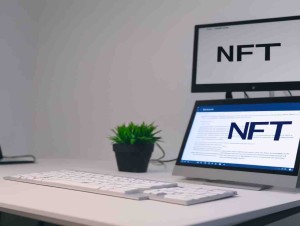JPMorgan has executed its first live blockchain-based collateral settlement, partnering with BlackRock and Barclays. Utilizing the bank’s Ethereum-based Onyx blockchain alongside the newly introduced Tokenized Collateral Network (TCN), this transaction signifies a momentous stride regarding asset tokenization.
BlackRock employed TCN to tokenize shares in one of its money market funds, which were swiftly transferred to Barclays as collateral for an over-the-counter derivatives trade. This notable venture into the tokenization landscape not only underscores the evolving synergy between traditional finance and blockchain technology but also showcases the speed and efficiency that blockchain adds to asset transfer and settlement processes.
Tokenization: A seamless bridge between traditional assets and digital utility
The tokenization process occurred seamlessly within minutes, with direct connectivity established between the fund’s Transfer Agent and TCN, according to a press release by JPMorgan.
This expedited transfer between BlackRock and Barclays was noted as a first for all involved parties, marking a pivotal point where shares in money market funds (MMFs) are utilized as collateral between bilateral derivatives counterparts.
Moreover, this initiative unveils a faster, more cost-effective method of meeting margin requirements by posting tokenized MMF shares as collateral. Tyrone Lobban, JPMorgan’s Head of Onyx Digital Assets, highlighted that the launch of TCN now enables clients to derive additional utility from their MMF investments.
This venture is not merely a one-off experiment but a significant leap towards a new operational paradigm. Following its internal test run of TCN in May 2022, JPMorgan has now extended its blockchain-based collateral settlement application to other esteemed clients, with a promising pipeline of transactions ahead. Ed Bond, head of trading services at JPMorgan, shared with Bloomberg the bank’s ambition to facilitate almost instantaneous collateral movement, a notable shift from the conventional day-long process.
The aspirations of TCN extend beyond money market funds. The new development also eyes the inclusion of diverse assets like equities and fixed income as collateral in the near future. Asset tokenization not only abbreviates the transaction timeframe but also bypasses the cumbersome traditional asset conversion and transfer methods.
The analogy can be drawn to skipping the step of converting paper money to coins for a vending machine, where tokens represent a direct, faster means of transaction.
Additionally, JPMorgan’s blockchain-based payment system, JPM Coin, exemplifies another stride towards merging traditional finance and blockchain technology. Offering extended operational hours beyond standard banking operations and enhanced speed, JPM Coin facilitates clients in initiating payments right before they are due, embodying the real-time transactional efficiency blockchain brings to the financial table.
As demonstrated by JPMorgan, BlackRock, and Barclays, the blend of traditional financial assets with blockchain’s digital utility paints a promising picture of finance’s digital future. The new development offers a glimpse into expedited, efficient transactions and heralds the broader acceptance and integration of blockchain technology in mainstream financial operations.




